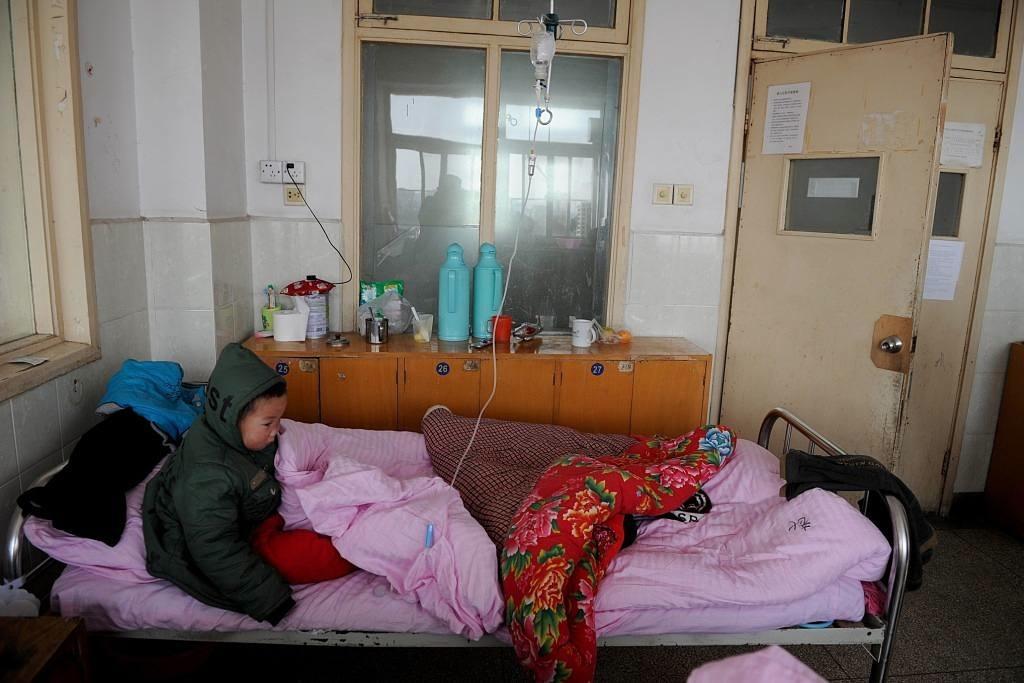In China, lead poisoning is widespread among children and treatment is denied, report says
A Chinese child receives treatment for lead poisoning in January 2011 after being exposed to lead from an unlicensed battery factory in Huaining. China is now being accused of trying to cover up the extent of lead poisoning among children.
China has been accused of trying to cover up the extent of lead poisoning among children, and of blocking proper testing and treatment, BBC News reported.
A report by Human Rights Watch released Wednesday said that in at least four provinces in mainland China, officials were covering up the extent of lead poisoning among children, AFP reported.
China’s industrial boom over the past few decades has caused widespread contamination by heavy metals, including lead and cadmium, resulting in a silent health epidemic, the Financial Times reported. The metals build up slowly in the human body over time, with subtle and confusing symptoms that are often mistaken for signs of other illnesses.
(From GlobalPost in China: The economics of killing someone)
In the past two and a half years, workers, villagers and children in China have been found to be suffering from toxic levels of lead exposure, mostly caused by pollution from battery factories and metal smelters, the New York Times reported.
Human Rights Watch estimated that "hundreds of thousands" of children, mostly in poor rural villages that are near factories, were suffering from lead poisoning, AFP said. The report documented a pattern of government neglect, saying that poisoned children rarely got proper care, and often continued living in toxic environments after being diagnosed, the Financial Times said. “In villages where lead exposure is highest, a generation of cognitively and physically disabled children will need significant and ongoing support,” the report said.
Excessive levels of lead in the blood are considered hazardous, particularly to children, and can result in developmental problems and lowered IQ, AFP reported. Lead poisoning often comes from smelting or recycling plants, BBC News said. The researchers found that parents in many cases didn't understand why their children weren't growing properly, or had anemia or hearing loss.
Enforcement efforts on lead poisoning have been weak, and haven't had much success. According to Human Rights Watch, in a news release on its website:
Over the past decade, numerous mass lead poisoning incidents have been reported across the country. In response, Environmental Protection Ministry officials have become more outspoken, directing local officials to increase supervision of factories and enforce existing environmental regulations. The ministry has also said that it will pursue criminal penalties for businesses and local officials who violate environmental restrictions.
However, these promises fall short of addressing the health consequences of lead poisoning and fulfilling the right to health for children exposed to lead, Human Rights Watch said. Authorities need to make sure that the immediate and long-term health care needs of people in contaminated villages are taken care of, and that the polluted areas are cleaned up.
Earlier this year, battery factories across China were closed and about 74 people were detained because of reports that more than 100 people were suffering from lead and cadmium poisoning, BBC News said. In the most-recent lead-poisoning case, in the eastern city of Yangxunqiao, hundreds of people have been poisoned by foil workshops and are petitioning the government for redress, according to the Financial Times.
The story you just read is accessible and free to all because thousands of listeners and readers contribute to our nonprofit newsroom. We go deep to bring you the human-centered international reporting that you know you can trust. To do this work and to do it well, we rely on the support of our listeners. If you appreciated our coverage this year, if there was a story that made you pause or a song that moved you, would you consider making a gift to sustain our work through 2024 and beyond?
